Book your physiotherapy appointment online
SERVICES
Therapies
Each therapy is a tool. Clinical reasoning determines the wise choices of using the right tools at the right time.
- Manual Therapy
- Exercise Therapy
- Posture Training & Education
- Integrated Systems Model
- Muscle Energy Techniques
- Sport Therapy & Orthopaedic Rehabilitation
- Craniosacral Therapy
- Visceral Manipulation
-
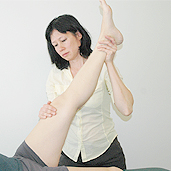
MANUAL THERAPY
Manual therapy is any form of skilled hands-on treatment such as manipulation, mobilization and massage that has the goal of releasing joint stiffness, soft tissue tightness and restoring normal movement and alignment.
-
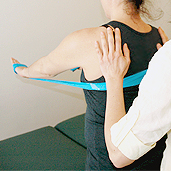
EXERCISE THERAPY
Specific exercises targeted individually for each client helps to reinforce corrective patterns of posture and movement in daily living. Exercises are easily incorporated into existing routines. -

POSTURE TRAINING & EDUCATION
There is an ideal way to sit, stand and position yourself so that the load is evenly distributed with minimal strain on your body and its parts. Posture training dispels myths that are learned in early years and reinforces correct patterns. -
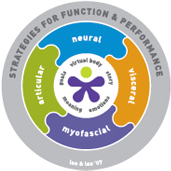
INTEGRATED SYSTEMS MODEL
This is a model of diagnosis and treatment developed by White Rock/ Vancouver physiotherapists Diane Lee and Linda-Joy Lee that considers the body as a whole and finds the primary driver of a problem. Through a system of cues to release, align, connect and move, the potential of the mind to change the body is tapped. New, optimal and painfree strategies for moving are learned and incorporated into the meaningful tasks for each client. -
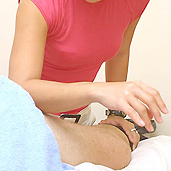
MUSCLE ENERGY TECHNIQUES
Muscle energy techniques use a client’s voluntary muscle action from a precisely controlled position in a specific direction against a distinct counterforce provided by the therapist. It is used for muscle relaxation, pain relief and joint mobilizations to bring about increased range of motion and improved joint alignment. It was first described by Fred Mitchell Sr, a Doctor of Osteopathic Medicine. -
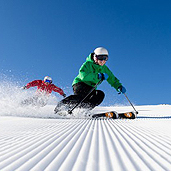
SPORT THERAPY & REHABILITATION
Treatment of sports injuries uses many of the tools and techniques already described. Important considerations are determining when it is safe to return to sport, prescribing exercises that are sport-specific and gradually progressing the level of activity. Athletes who have had surgery will follow a protocol to ensure that the area of repair is protected, heals well and optimal function is restored. -
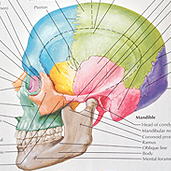
CRANIOSACRAL THERAPY
Craniosacral therapy is a gentle, non-invasive therapy that assesses and corrects restrictions of the craniosacral system using the bones of the skull (cranium) and tailbone (sacrum) to improve wellness and enhance the body’s self- regulating mechanism. The craniosacral system is responsible for the production, circulation and re-absorption of cerebral spinal fluid. This technique has been found to help clients with headaches/ migraines, difficulty sleeping, birth trauma (forceps delivery, head compression), falls/ blows to the head or sacrum, temporomandibular (jaw) joint pain, and to increase overall vitality and immune system function. It has also been used for kids with attention deficit disorder, autism and cerebral palsy. -
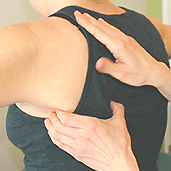
VISCERAL MANIPULATION
Visceral Manipulation is a manual therapy consisting of gentle, specifically placed manual forces that encourage normal mobility, tone and inherent tissue motion of the internal organs or viscera, their connective tissue and other areas of the body where physiologic motion is impaired. Our bodies need movement to be healthy. This applies to every structure in our bodies including the organs. Tissues lose their normal motion when they become inflamed. Visceral Manipulation restores normal motion which not only improves the function of the organ, as well as its impact on any associated neuro-musculoskeletal dysfunctions and overall health of the body.
Areas of Interest & Specialty
I found great success in treating neck, pelvic and thoracic dysfunctions using muscle energy techniques (MET): gentle muscle contractions that guide the joint into the desired position.
Sacro-iliac joint and thoracic ribs are areas of great interest that respond well to MET.
- Pelvic & Sacro-iliac Joint
- Thoracic Joint & Rib Dysfunctions
- Neck & Back Pain
- Headaches & Whiplash
- Complex, Chronic Pain
- Soft Tissue Sprains & Strains
- Orthopaedic Post-surgical Rehabilitation
- Sports & Dance Performance
-
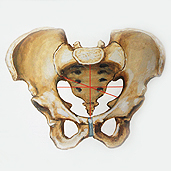
PELVIC & SACRO-ILIAC JOINT
Joints in the pelvis, in particular, the sacro-iliac joint and pubic symphysis, can become painful and mal-aligned as a result of a fall, mis-step, car accident or anything that can push or pull the bones out of alignment with each other. Wrong patterns of repeated movement can do the same, such as the incorrect golf swing or repeatedly working in an awkward position.
-
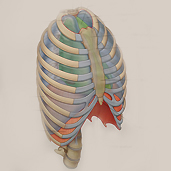
THORACIC JOINT & RIB DYSFUNCTIONS
The thorax is the part of your body between your neck and lower back. Joints in this section, including the ribs, can get yanked out of alignment through sport, fall, seatbelts in an accident and at work. Mal-alignments are also caused by compressive forces through the arms and upper body as well as poor movement patterns and posture.
-
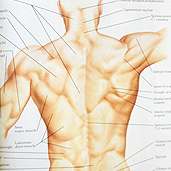
NECK & BACK PAIN
Neck and back pain is a common complaint and reason for seeking help from a physiotherapist or chiropractor. Our habit of sitting or standing for long periods is a common contributing factor, along with poor posture, inadequate core muscle strength and repeated bending and rotation forces.
-
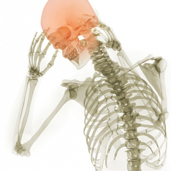
HEADACHES & WHIPLASH
Headaches have a variety of causes and triggers. Cervicogenic and tension headaches have found relief with manual therapy and massage techniques. As mentioned previously, craniosacral therapy has been extremely effective for treating all kinds of headaches, including migraine. Where headaches are caused by trauma, whether at birth, from a fall or a blow, these will respond well to Craniosacral therapy.
-

COMPLEX, CHRONIC PAIN
Complex, chronic pain often has its origin in an early injury that did not get correctly and completely rehabilitated. This leads to a series of compensations up the body, one leading to the next. Sooner or later, tissues become compromised over a period of time leading to pain in more than one area. As long as the original problem (driver) is not addressed and the patterns of compensations remain, the pain will continue. Correcting the driver will release the compensations and break the pain cycle.
-
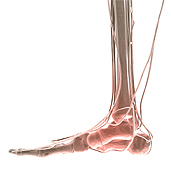
SOFT TISSUE SPRAINS & STRAINS
Every person at one time or another will experience soft tissue sprains and strains either from trauma or repeated stress. The reason soft tissue injuries often do not heal on their own is that a tightly woven, haphazardly-arranged remnant of scar tissue remains, causing pain and inflexibility. Once this scar tissue or adhesions is broken down through deep tissue or friction massage, the healing process can progress.
-
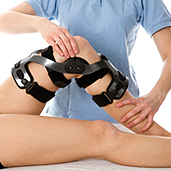
ORTHOPAEDIC POST-SURGICAL REHABILITATION
Patients who have surgery to replace a hip, knee or repair torn tendons and ligaments will undergo a treatment protocol to ensure that the repaired area is protected, heals well and that adequate strength and range of motion is gained in a reasonable time frame. This protocol will be adapted to meet your individual needs without compromising the healing structures.
-
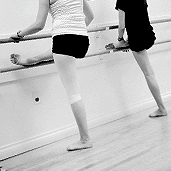
SPORTS & DANCE PERFORMANCE
An athlete, skater or dancer will perform their best more effortlessly if they have the basic foundation of optimal posture, alignment, muscle control and body mechanics. On this foundation, more complex patterns of movement, muscle control which will enhance efficiency, precision, agility and speed.

